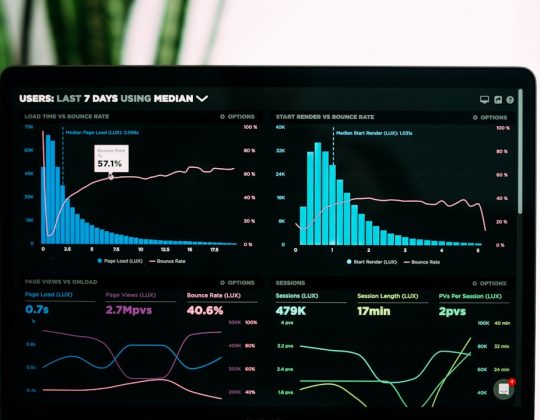In the ever-evolving world of construction, meeting project deadlines and staying within budget are two critical success metrics. Traditionally, delays and unexpected costs have plagued the construction industry due to manual processes, fragmented communication, and unpredictable workflows. However, the emergence of construction management platforms is transforming this landscape dramatically. These digital tools are not only streamlining the project lifecycle but are also proving to improve project delivery times by as much as 48% while significantly reducing costly delays.
The Need for Smarter Construction Management
Construction is a complex process that involves numerous stakeholders including architects, engineers, contractors, and clients. Each phase from design and procurement to execution and handover can be susceptible to interruptions. Traditional project management tools like spreadsheets or disjointed communication methods introduce human error and inefficiency. This fragmentation makes it difficult to detect roadblocks, which can delay delivery and inflate budget projections.
This is where modern construction management platforms step in. With a centralized platform, stakeholders collaborate in real-time, helping projects stay on track through enhanced visibility, task automation, and digital documentation.
Key Features That Streamline Timelines
Construction management platforms are designed with a set of features that directly contribute to faster and more efficient project delivery:
- Real-Time Communication and Collaboration: Stakeholders can comment, notify, and share updates instantaneously without needing in-person meetings or endless email chains.
- Task Automation: Routine administrative tasks, such as schedule updates and timesheet entries, are automated to save time and reduce human error.
- Cloud-Based File Storage: Blueprints, permits, and contracts can be accessed from any location by any authorized team member, accelerating decision-making.
- Integrated Schedules and Calendars: Project managers can assign tasks with dependencies, ensuring critical paths are followed properly.
- Mobile Accessibility: On-site teams can report progress, access project data, or inspect plans via mobile devices, eliminating the delay of relaying information manually.

48% Faster Project Delivery: What’s Behind the Numbers?
Studies and case reports from industry leaders who implemented construction management platforms like Procore, Buildertrend, and Autodesk Construction Cloud show a remarkable reduction in project delivery times — in some cases by nearly half. This acceleration is achieved through two prominent avenues:
- Minimization of RFI Delays: Requests for information (RFIs) are a notorious cause of slowdown. A platform that tracks RFIs and lets users respond immediately without leaving the system means issues are resolved days, or even weeks, faster.
- Improved Resource Allocation: When all schedules, equipment statuses, and team availability are visible in one system, companies can optimize who works where and when, cutting down idle time.
On large-scale projects, this level of coordination can shave off months from the schedule — improving not just ROI but also client satisfaction and competitive advantage.
Preventing Costly Delays Through Enhanced Risk Management
Construction delays aren’t merely scheduling issues; they are also enormous financial liabilities. Idle equipment fees, missed contractual milestones, and labor costs from rework all translate into budget creep. Construction management platforms help reduce these risks in multiple ways:
- Real-Time Updates and Insights: The ability to monitor task completion percentages and financial metrics in real time allows managers to make proactive adjustments before issues escalate.
- Automated Compliance Checks: Safety and legal compliance modules alert stakeholders instantly about code violations or regulatory breaches that could halt progress if not addressed.
- Change Order Transparency: Platforms make it easy to track change orders, provide rationale, and instantly recalculate budget projections — reducing financial surprises down the line.

Case Study Snapshot: Real-World Results
A leading commercial construction firm in Texas turned to a cloud-based construction platform after experiencing repeated delays in high-value projects. Within just two quarters of implementation, the company reported:
- 53% reduction in response times for RFIs
- Over $200,000 saved in change order disputes
- 48% improvement in overall project delivery time
These efficiency gains were largely credited to improved access to real-time data, quicker decision-making, and improved accountability among subcontractors and vendors.
Intelligent Reporting and Post-Project Analysis
Another powerful feature of construction management platforms is their robust reporting capabilities. Once a project is complete, these systems generate detailed analytics that allow companies to evaluate:
- What caused bottlenecks?
- Which team members or contractors consistently met expectations?
- How closely did the project align with the original budget?
This data is invaluable for continuous improvement, helping firms avoid repeated mistakes and fine-tune their processes on future builds.
The Road Ahead
As construction projects become more complex and clients demand faster turnarounds, the industry will continue to gravitate toward smart technology solutions. The ability of construction management platforms to consistently deliver projects up to 48% faster and with fewer delays is no longer just compelling — it’s becoming essential. Forward-thinking firms investing in these tools today will be the industry leaders of tomorrow.
Frequently Asked Questions (FAQ)
- Q: What exactly is a construction management platform?
A: It’s a digital solution that helps plan, coordinate, and execute construction projects by integrating scheduling, communication, document storage, and budgeting in one platform. - Q: How does this technology reduce delays?
A: By offering real-time updates, task automation, and centralized communication, these platforms prevent miscommunication and streamline workflows. - Q: Are these platforms suitable for small construction firms?
A: Yes, many platforms offer scalable solutions tailored to small- and medium-sized contractors, making the benefits accessible regardless of company size. - Q: What’s the average setup time for such a platform?
A: Implementation time varies, but most teams can be onboarded and see value within a few weeks, especially with provider support and training resources. - Q: Do these platforms integrate with existing accounting or procurement software?
A: Leading platforms like Procore and Autodesk integrate with common tools such as QuickBooks, SAP, and DocuSign, ensuring a seamless workflow.








